On the 19th of the Iranian calendar month of Dey (January 9), Hujjat al-Islam wal-Muslimeen Mohsin Ali Najafi, a jurist, Quranic interpreter, and eminent scholar, passed away after a lifetime of struggle in the cause of propagating the teachings of Islam and elevating the sciences of the Ahl al-Bayt (pbut) in Pakistan. Leader of the Islamic Revolution Ayatollah Khamenei, in a message, expressed his condolences to the people, scholars and seminaries of Pakistan on the death of this great scholar.He wrote in his message:
News of the passing of the honorable scholar who served the people, the late Hujjat al-Islam wal-Muslimeen Haj Sheikh Mohsin Ali Najafi (may God bless him), has brought sorrow and grief. I send my condolences to the scholars and the Islamic seminaries in Pakistan, to his family and friends, and especially to the honorable Shia population in Baltistan. I ask the Grateful God for abundant forgiveness and an exalted degree for this virtuous scholar. And I ask for patience and reward for his honorable family that he has left behind.
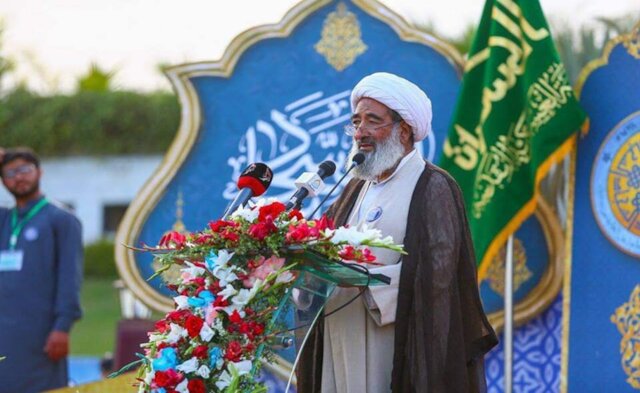
The late Sheikh Mohsin Ali Najafi was born in 1322 AH (1943) in the village of Manthokha in the Kharmang region, located 60 km from Skardu, Baltistan, Pakistan. His father, Hossein Jan, was one of the scholars of that region. Mohsin Ali started his elementary education under his father. At the age of 14 and after his father’s demise, he continued his studies under another scholar of his village, Sayyid Ahmad Mousavi. In 1342 AH (1963), Mohsin Ali Najafi began studying at Mashare Al-Uloom school in Sindh province, and within one year, he learned the Urdu language in addition to his seminary studies. After that, he traveled to Punjab and became a student of Maulana Muhammad Hussain at Darul Uloom Jafariya in Khooshab city. Mohsin Ali Najafi then entered Jamia Al-Muntazar seminary in Lahore to continue his education and studied under professors such as Hossein Bakhsh Jara and Safdar Hussain Najafi. In 1346 AH (1967), he entered Najaf seminary and studied religious sciences with Ayatollah Khoi and Martyr Baqir Sadr and other professors of that seminary.
Mohsin Ali Najafi returned to Pakistan in 1353 AH (1974), and until the end of his life, with his blessed presence, he was engaged in teaching Islamic jurisprudence and principles, interpretation of the Quran, philosophy, theology and ethics. He was also the representative of Ayatollah Sistani in Pakistan and the head of the Supreme Council of Ahl al-Bayt (pbut) of Pakistan.
The late Sheikh Mohsin Ali Najafi has left many works in the field of Islamic sciences in Arabic and Urdu languages, among them Al-Kawthar fi Tafsir al-Quran (fluent and simple interpretation of the Quran in Urdu in 10 volumes), Balagh al-Quran (translation and explanation of the Quran in Urdu), The Correct Approach to the Meaning of Al-Mawla and Al-Wali (in Arabic), Comparative Ideology Studies (in Arabic), Mehnat Ka Islami Tassawur (in Urdu) and The Philosophy of Prayer (in Urdu)

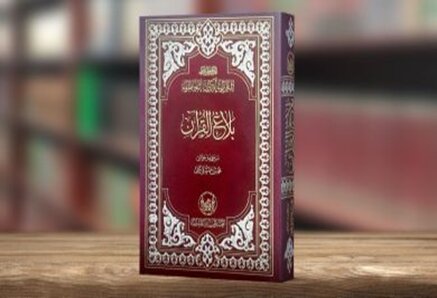
In addition to his scientific works as one of the foremost Islamic jurists of the subcontinent, the late Allamah Najafi was among the messengers of Islamic unity in Pakistan and engaged in many activities in cultural, educational, social, and political fields.
One of his important cultural measures was the establishment of Ahl al-Bayt schools, a collection of 27 schools across Pakistan that operated under the management of the deceased. Among them, 18 schools are for men and 9 schools are for women. The most important of these schools are the Ahl al-Bayt Community and Al-Kawthar Community which are located in Pakistan’s capital. The Al-Kawthar Community, in addition to teaching Lomatin, Rasail, Makaseb, Kefayatin, and extra-jurisprudence studies, also has the required academic educational facilities. His other important cultural measure was the establishment of the Uswa Education System in Pakistan, one of the branches of the Jabir ibn Hayyan Trust, which was managed under the supervision of the late Sheikh Mohsin Najafi and has been operating in different regions of Pakistan since 1994. In this system, 12 faculties, 4 faculties of arts, 2 paramedical faculties, the IGSC faculty and 58 schools from primary school to diploma are active, the most important of which is Uswa College in Islamabad, Bintul Huda Hifzul Quran Girls School in Skardu, and Kawthar College for Women in Islamabad.
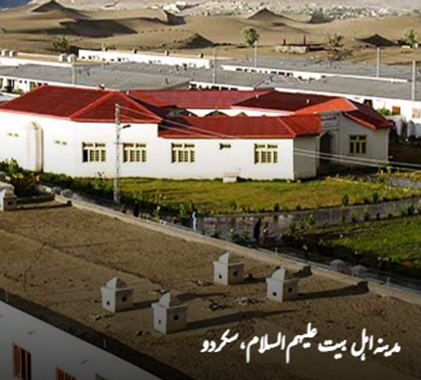
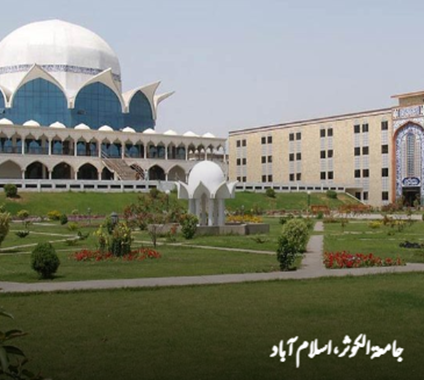
Also, in addition to his invaluable scientific services, he left behind many legacies in the social and welfare field, such as the construction of hussainiyahs and mosques, residential projects for orphans and the poor, the Hussaini Foundation to help earthquake and flood victims, helping the needy to marry, public health and water supply to deprived areas.
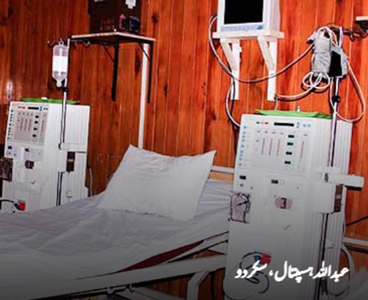
On the occasion of the demise of this pious scholar, we asked Hujjat al-Islam wal-Muslimeen Amin Shahidi, one of the prominent clerics of Pakistan, to familiarize us with the characteristics, scientific personality, and activities of the late Sheikh Mohsin Ali Najafi.
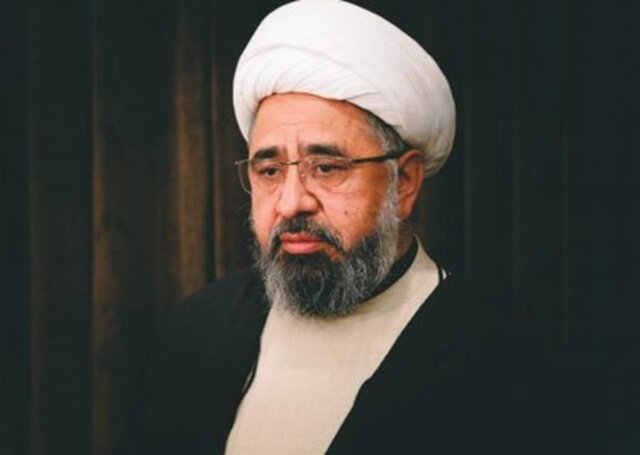
Hujjat al-Islam wal-Muslimeen Amin Shahidi says about the late Najafi’s character:
Mr. Sheikh Mohsin Ali Najafi is among the prominent and famous scholars of Pakistan. All scholars, academics, and freedom-seeking people recognize his scientific and cultural services. He had a steadfast and comprehensive personality. From the perspective of science, thought, spirituality, sociology, and political understanding, he was very deep and many features are visible in his character. He both wrote and gave speeches. He was both a good researcher and an excellent lecturer. He was very interested in philosophy. He was fully skilled in Islamic jurisprudence. He wrote an interpretation of the Quran as well, which is very valuable.
Amin Shahidi describes the beginning of the late Najafi’s activity in Pakistan as follows:
After returning from Najaf al-Ashraf, Mr. Sheikh Najafi established a school in Islamabad called Ahl al-Bayt School, which is unique in terms of scientific, intellectual, and spiritual education of students. He made this school the center of his propagation and promoted science and religion in the cities around Islamabad. He also translated many books that have been received well by people and scholars. Sheikh Najafi wrote many books in Urdu, and he also has a book about Commander of the Faithful [Imam Ali (pbuh)] in Arabic. His students are also currently studying or teaching religious sciences in Pakistan, Najaf, and Qom. He started teaching after returning from Najaf al-Ashraf, which he continued until the end of his blessed life of 84 years. Mr. Sheikh Mohsin Ali Najafi was very fond of Ahl al-Bayt (pbut), especially Commander of the Faithful (pbuh) and Fatima al-Zahra (pbuh).
Hujjat al-Islam wal-Muslimeen Amin Shahidi assesses the social and welfare activities of the deceased as impactful:
He played an important and effective role in every field he entered. He was the first person to establish Shia schools in all parts of Pakistan. Currently, his schools called Uswa Education System are active and serve like a chain in the entire Pakistan. Sheikh Najafi was always a pioneer in building religious schools. Currently, tens of religious schools exist in different parts of Pakistan due to his endeavors. The late Najafi had established a religious school in Najaf al-Ashraf as well. He also did a lot of work for the construction of mosques and hussainiyahs. Hundreds of mosques and hussainiyahs were established, especially in the deprived areas of Pakistan, with his efforts. He also worked in the areas that were destroyed in the 2008 earthquake, and, in addition to his social and welfare activities, he established many mosques and hussainiyahs in those areas.
Mr. Shahidi says about the outstanding cultural and educational activities of the deceased: “Sheikh Mohsin Ali Najafi launched a religious and educational television channel called Hadi TV. He also founded several colleges and technical and vocational colleges. Currently, there are more than 20,000 students studying in his schools and about the same number are serving in the society after graduating from his schools and colleges.” This prominent Pakistani cleric refers to the political activities of the late Najafi and his relationship with the esteemed maraji [religious authorities] as follows:
Mr. Sheikh Najafi was a staunch opponent of Saddam from the beginning, and because he had studied under Ayatollah Shahid Baqir Sadr and Ayatollah Khoi, he was particularly fond of the two dignitaries. When he returned to Pakistan from Najaf, he was the representative of Grand Ayatollah Khoi. After the death of Ayatollah Khoi, Ayatollah Sistani also appointed him as his representative in Pakistan. Mr. Sheikh Najafi worked very hard to strengthen religious schools, train seminary professors, and create a coherent curriculum. The deceased was especially fond of Imam Khomeini. After the Islamic Revolution, when Saddam attacked Iran, he always defended Iran, the revolution, and the resistance of the Iranian people, and I closely witnessed his endeavors. He also played a prominent and positive role in Imam Khomeini’s movement. The deceased always took steps in support of the Islamic Revolution, the Leader and the Imam of the revolution. He did great things to promote the message of the Islamic Revolution in Pakistan.
This article was originally written and published in the Urdu Khamenei.ir
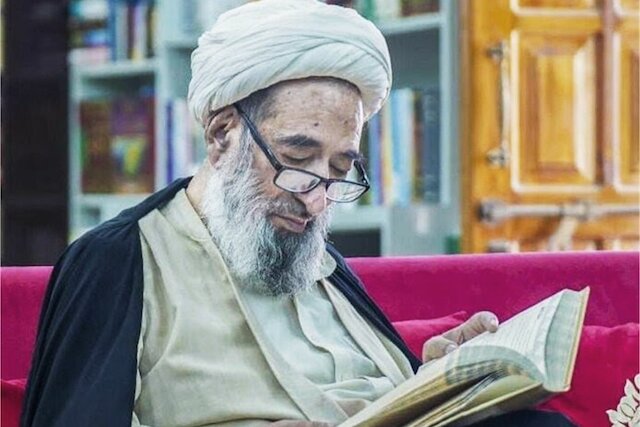
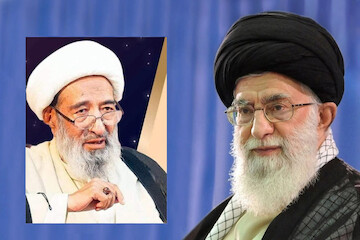
Comment